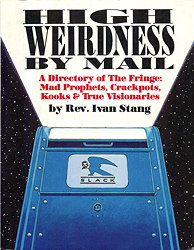Books
Pre-internet Underground Book Distribution
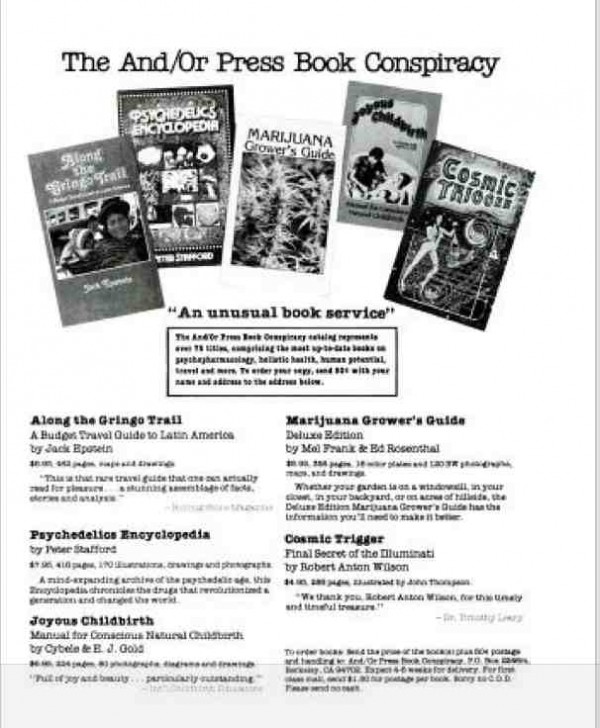
Original ad here.
Gather around, children, and you shall learn of an ancient time, before the internet. A day of paper fanzines and weird information obtained only via books delivered by snailmail.
The main purveyor of such good stuff was the Loompanics catalog. Alas, they were driven out of business in 2006. The current website using their domain name is a shell and a scam by cybersquatters.
Over one hundred Loompanics books have been tagged as a Goodreads collection. You can get a small sense of what they were all about there.
Posted By: Paul - Fri Jan 11, 2013 -
Comments (9)
Category: Drugs, Avant Garde, Books, Bohemians, Beatniks, Hippies and Slackers, Conspiracy Theories and Theorists, 1970s, 1980s, 1990s
One of My Xmas Gifts
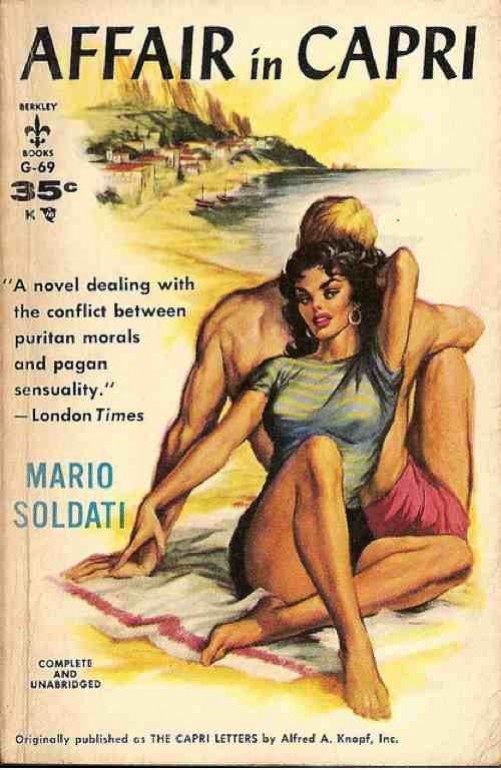
Vintage paperbacks are the best!
Posted By: Paul - Wed Dec 26, 2012 -
Comments (4)
Category: Holidays, Books, 1950s, Europe
How To Carve An Elephant
An illustration for this purpose can be found in a sixteenth-century edition of De Arte Coquinaria (On the Subject of Cooking).
A 1905 article in the Strand magazine provides more info about this work:
The work is divided into ten books, beginning with soups, pickles, and sauces, and proceeding through the whole art of cookery, with hundreds of recipes, the very reading of which makes one's mouth water. For instance, who could resist "virgin sow drest with broth made of pepper, wine, honey, oyl, and stew'd damsons"? Or dormouse sausages? ...
There are many recipes in the book to dress "cramp-fish, that numb the hands of those that touch them; the cuttlefish, whose blood is like ink; the pourcontrel, or many feet, the sea-urchin or hedgehog." ...
Then, again, we are given minute instructions for the carving of beasts whose flesh was esteemed by the ancients. "In partes of Asia and Africa," we are told, "the oliphant is eaten, not as the Romans and Egyptians were wont to do, sparingly and only as pertain'd to his feete, trunk, and tayle all of which were great delicacies, but his entire carcase is carved and consumed." For the benefit of those who might happen to possess an elephant and be tempted to eat him a chart of carving instructions accompanies the text.
Posted By: Alex - Wed Dec 12, 2012 -
Comments (5)
Category: Animals, Food, Books, Sixteenth Century
William Luther Pierce and Cosmotheism
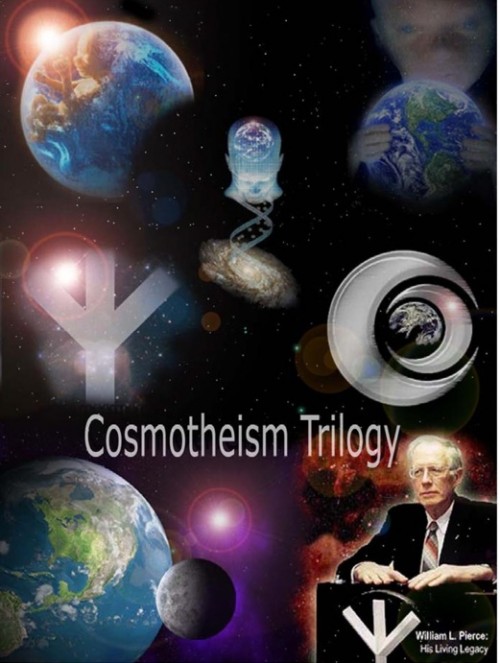
I'll bet nearly every WU-vie is aware of the infamous racist novel The Turner Diaries. But were you aware that author William Luther Pierce also invented his own religion to accompany his propaganda?
"Cosmotheism is a scientific-racial-spirituality based religion, a convergence of meditation, White separatist ideologies, cosmic evolutionary theory and transhumanism thought. "
Read THE COSMOTHEISM TRILOGY here.
Posted By: Paul - Thu Nov 01, 2012 -
Comments (27)
Category: Racism, Books, Conspiracy Theories and Theorists
Autobiography of Jesus

Wouldn't so many, many contemporary controversies be definitively settled if only we had Jesus's own writings about his life? Doesn't the sorry world of the 21st century need his inspired insights, straight from the Savior's lips? Of course! And yet, this Spiritualist-dictated "autobiography" languishes unread!
Check it out here.
Posted By: Paul - Wed Sep 05, 2012 -
Comments (9)
Category: Disguises, Impersonations, Mimics and Forgeries, Hoaxes and Imposters and Imitators, Religion, Books, Nineteenth Century
Orwell’s Cough
I just read an advance copy of Shakespeare's Tremor and Orwell's CoughFor instance, Jonathan Swift suffered from bouts of dizziness and deafness. Here's Ross on how 18th Century medicine treated him:
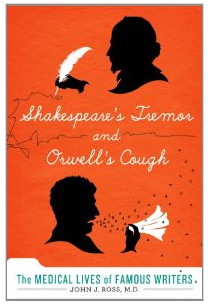
Posted By: Alex - Thu Jul 19, 2012 -
Comments (4)
Category: Medicine, Books
The Lottery—The Sexy Edition
If people bought this 1950 edition of The Lottery by Shirley Jackson thinking it would be a sex-filled potboiler, they were in a for a bit of a disappointment.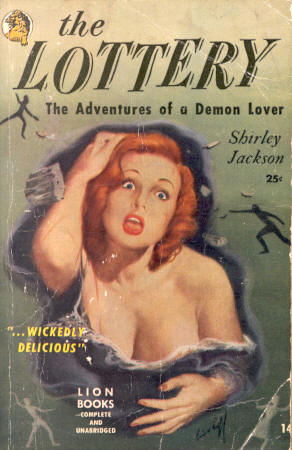
Posted By: Alex - Fri Mar 23, 2012 -
Comments (8)
Category: Literature, Books
Dumb History
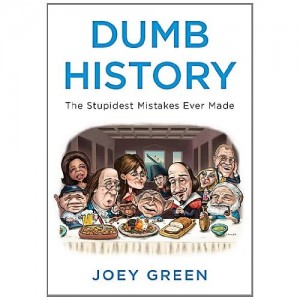
Just got my copy of this title, and it looks like a winner for all WU-vies. I'll report more soon.
Posted By: Paul - Sun Mar 18, 2012 -
Comments (4)
Category: History, Stupidity, Weird Studies and Guides, Books
Bookups
An exercise for bookworms!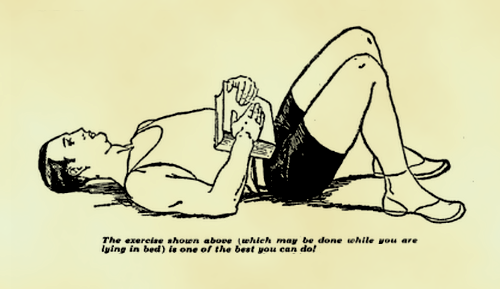
(via the ragbag)
Posted By: Alex - Fri Mar 02, 2012 -
Comments (2)
Category: Exercise and Fitness, Books
Who Are You?
Edward Packard invented the "Choose Your Own Adventure" genre, which made him a good living -- and still does. According to wikipedia, he recently started a company to bring Choose Your Own Adventure apps to the iPhone and iPad. Packard may also have caused an entire generation of kids to be confused about their identity: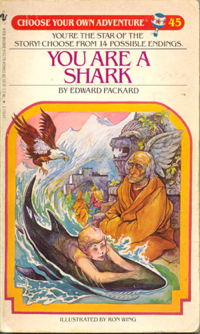 | 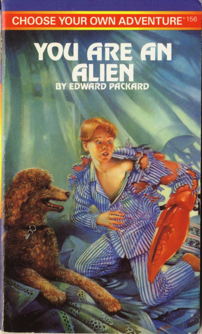 |
 | 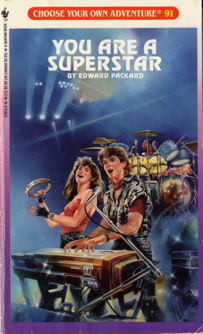 |
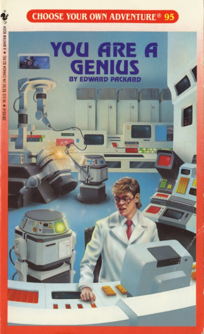 | 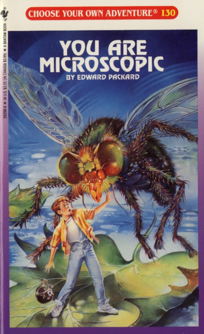 |
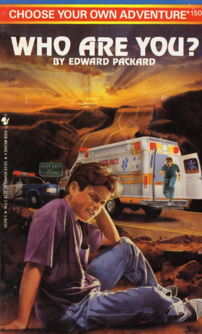 |
Posted By: Alex - Thu Mar 01, 2012 -
Comments (4)
Category: Literature, Books, Fantasy, Science Fiction, Writers

| Who We Are |
|---|
| Alex Boese Alex is the creator and curator of the Museum of Hoaxes. He's also the author of various weird, non-fiction, science-themed books such as Elephants on Acid and Psychedelic Apes. Paul Di Filippo Paul has been paid to put weird ideas into fictional form for over thirty years, in his career as a noted science fiction writer. He has recently begun blogging on many curious topics with three fellow writers at The Inferior 4+1. Contact Us |




